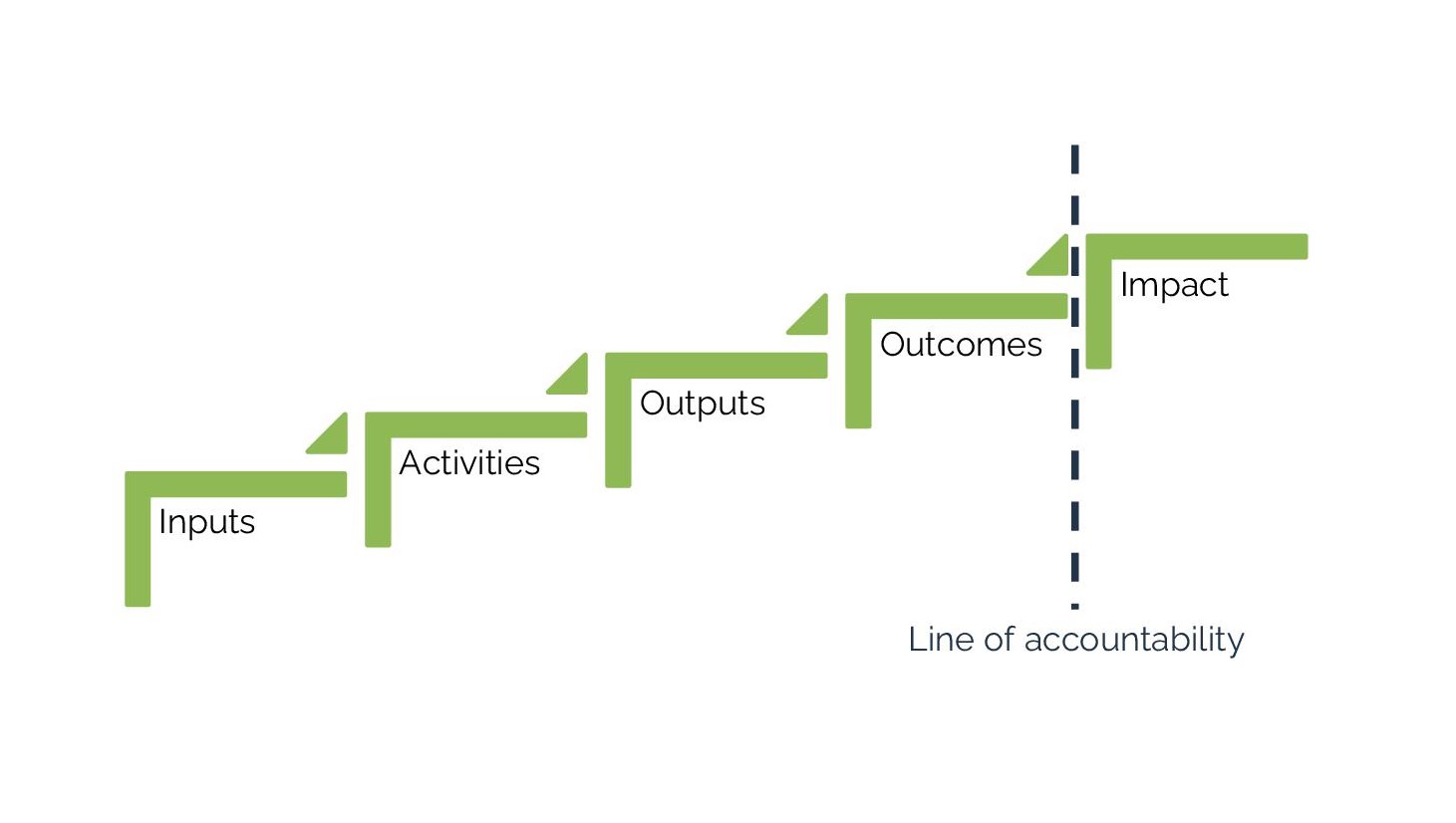Why measuring outcomes matters more than impact (at first)
How and why your focus on impact measurement should initially be on outcomes.
When it comes to impact measurement, many charities fall into the same trap I once did as a CEO: we try to measure too much, too soon, assessing long-term impact without first understanding the short and medium-term outcomes.
It’s not surprising. We’re under pressure to prove to funders, trustees and communities that we’re making a difference. But if we’re not clear about the changes that happen during the lifetime of our project – the outcomes of our intervention –, then we risk minimal take-up of consultations about long-term impact and little evidence of the difference made.
Start small
Before you can measure your long-term impact, i.e., the wider social, environmental, economic or policy changes your work contributes to, you need to be clear on what your outcomes are – these are the specific changes in knowledge, skills, attitudes or behaviours that result from your project.
Here’s why:
- Outcomes should be achievable within the length of your project (whereas long-term impact is what happens after your support ends).
- They should be within your power to influence – your project delivers the activities that will lead to these specific changes (whereas long-term impact often requires the input of others).
- They are easier to measure when using the right tools and indicators.
Trying to measure the big-picture impacts (such as reduced homelessness or improved mental health across a community) without first tracking your own project’s outcomes is sort of like trying to cross a river without being certain there is a bridge or a boat that will effectively get you there. You need to understand what’s changing now before you can chart the bigger picture.
Consider the line of accountability
One simple but powerful concept that can transform your evaluation approach is the line of accountability.
This is the invisible line in your Theory of Change or Logic Model that separates what you are directly responsible for from what lies beyond your control.
Everything before the line is your responsibility to plan, deliver and then measure. This includes inputs, activities, outputs, and most outcomes – things like:
- The number of participants attending your sessions (an output)
- Their increased knowledge or confidence (an outcome)
- Their feeling of being better informed or less isolated (an outcome)
Everything beyond the line – such as reduced A&E admissions or increased school attainment – is likely influenced by many factors and organisations outside of your control.
It’s not that these things don’t matter, but they usually sit outside your direct accountability. Attempting to measure them without the right resources and methods can quickly become a dead end.
Get specific about outcomes
Here is a checklist to help identify strong outcome statements. Good outcomes should:
- Describe changes in knowledge, skills, attitudes, or behaviour
- Be achievable within your project timeframe
- Use ‘change’ words (like ‘increase, ‘reduce’, ‘improve’)
- Be measurable
- Be within your power to achieve
- Reflect a real need that your project is designed to meet
Examples of outcomes:
“Young people feel better informed about the support services available.”
“Children with learning disabilities are calmer and less anxious.”
Outcomes like these sit firmly within the line of accountability, right where your evaluation efforts should focus first.
The power of focusing on outcomes
Had I known about this approach when I was CEO of a helpline for young people, I wouldn’t have felt so stuck. I genuinely thought we couldn’t measure the difference we make because we couldn’t track long-term outcomes like reductions in self-harm, but we could have measured whether young people left the call with a clear plan of what they were going to do next, or whether they felt more in control of their situation. That would have been a powerful start.
The bottom line …
If you’re struggling with impact measurement, simplify it.
Shift your attention to the changes you can directly influence. Outcomes provide you with credible, funder-friendly data that demonstrates the value of your work, and they lay the foundation for measuring long-term impact later, if and when you are ready.
Start before the accountability line. Measure what matters. That’s where real insights begin.

Emma Insley
FOUNDER & LEAD CONSULTANT
Emma has first-hand experience of the thrills and terrors of charity leadership. Dedicated to the non-profit sector for 30 years, Emma has both depth and breadth of experience as a CEO, Consultant, Trustee and Chair, Fundraiser and Grants Assessor.


